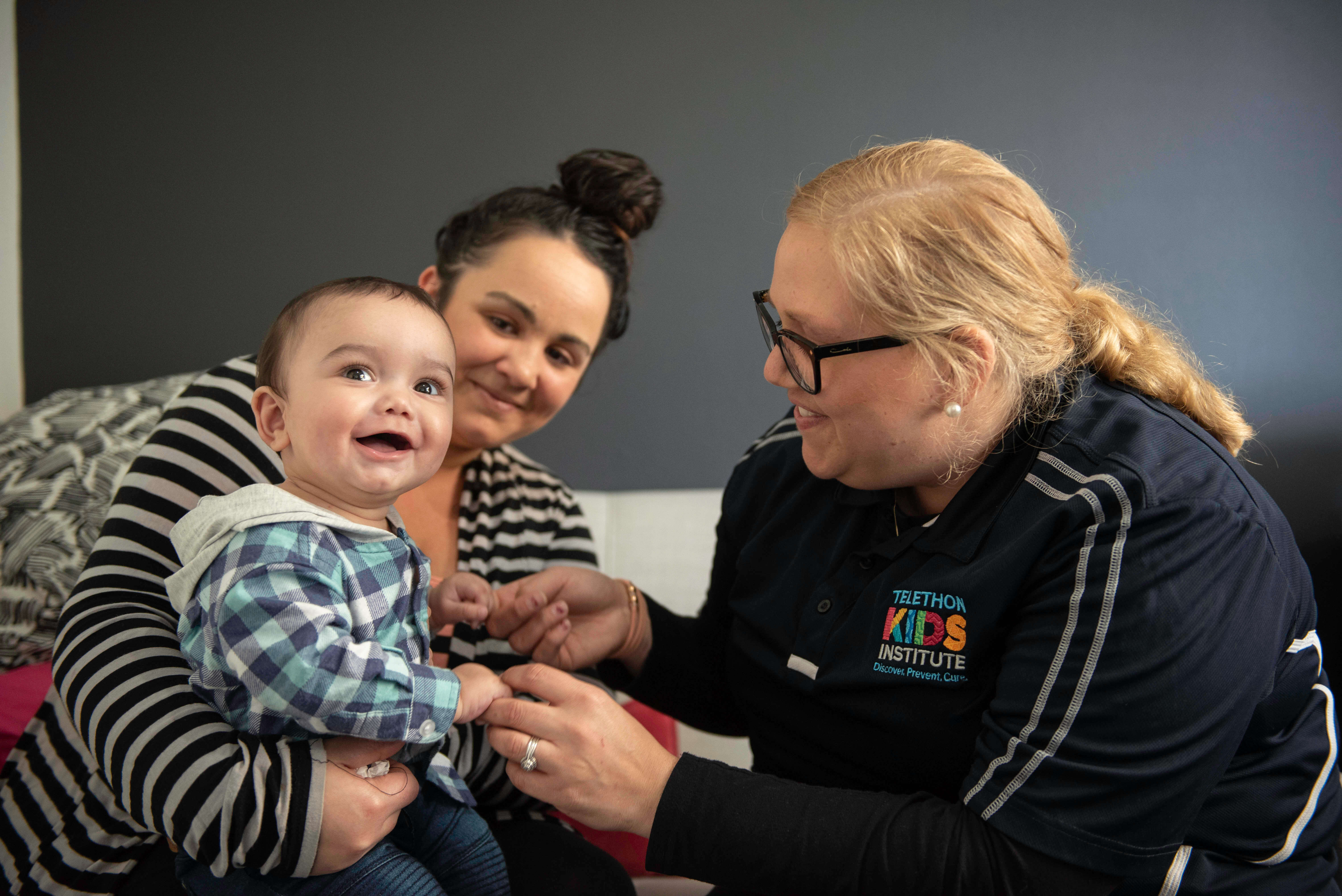Search
News & Events
The science of immunisation: Questions and answersCommon myths about immunisation have been laid to rest in a new booklet written by top immunologists and published by the Australian Academy of Science.
News & Events
New vaccine could protect against more types of cancer-causing HPVTrial of new vaccine that could provide women with additional protection against Human Papillomavirus (HPV) types known to cause cervical cancer.

News & Events
Perth women needed for international cervical cancer studyPerth women are being invited to take part in a global study of an exciting new vaccine that could protect against cervical cancer


News & Events
Pioneering technique opens new window on first week of lifeAn international team of researchers has pioneered a technique which gives unprecedented insight into the dramatic changes occurring in a baby’s body in the first week of life.

News & Events
Wesfarmers tops 2019 GivingLarge ReportThe major funder of the Wesfarmers Centre of Vaccines and Infectious Diseases based at The Kids Research Institute Australia has been recognised as Australia’s most generous giver.
Research
School-based HPV vaccination positively impacts parents’ attitudes toward adolescent vaccinationThis qualitative study aimed to explore parental attitudes, knowledge and decision-making about HPV vaccination for adolescents in the context of a gender-neutral school-based Australian National Immunisation Program (NIP). Semi-structured interviews with parents of adolescents eligible for HPV vaccination were undertaken as part of an evaluation of a cluster-randomised controlled trial of a complex intervention in 40 schools (2013-2015).
Research
The Collaboration for Increasing Influenza Vaccination in Children (CIIVIC): a meeting reportThe burden of seasonal influenza disease in Australian children is substantial, especially for those with medical comorbidities including chronic cardiac, respiratory, neurological and immunosuppressive conditions. Influenza is more likely to be severe in children with comorbidities compared to previously healthy children (e.g. more frequent and longer hospitalisation, more frequent intensive care unit admission and requiring respiratory support). Direct protection against influenza by vaccination is critical for children with comorbidities and remains the most effective tool for influenza prevention.
Research
COVID-19 and changes in the National Immunisation Program: a unique opportunity to optimise the Australian Immunisation Register (AIR)Christopher Blyth MBBS (Hons) DCH FRACP FRCPA PhD Centre Head, Wesfarmers Centre of Vaccines and Infectious Diseases; Co-Head, Infectious Diseases
Research
Immunisation with the BCG and DTPw vaccines induces different programs of trained immunity in miceIn addition to providing pathogen-specific immunity, vaccines can also confer nonspecific effects (NSEs) on mortality and morbidity unrelated to the targeted disease. Immunisation with live vaccines, such as the BCG vaccine, has generally been associated with significantly reduced all-cause infant mortality. In contrast, some inactivated vaccines, such as the diphtheria, tetanus, whole-cell pertussis (DTPw) vaccine, have been controversially associated with increased all-cause mortality especially in female infants in high-mortality settings.
